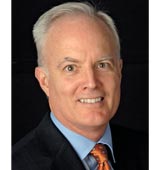|
Executive Interviews: Interview with Jay A Conger on The Making of a CEO
January 2009
-
By Dr. Nagendra V Chowdary
 Jay A Conger
Jay A Conger Henry Kravis Chaired Professor of Leadership at Claremont McKenna College in California and Visiting Professor at the London Business School 
Thank you professor, consenting
for this interview. Congratulations for
having authored 14 books (on leadership,
corporate governance, persuasion,
leadership development, spirituality
in the work place, and talent
management) and a very great number
of thought provoking articles on those
topics. Can you take us through your
motivational instincts and inspirational
circumstances that triggered
your research in leadership? What
have been the most defining and satisfying
moments of that research in
leadership?
My father was a career officer in the
US State Department, and his role
was to escort world leaders who visited
the United
|
|
States to see the
nation’s important sights. He would
later go on to become the Curator of
the White House where he served
four American Presidents. The Curator
is the individual who is in charge
of the historical aspects of the White
House much like a museum curator.
As a young person, I became deeply
intrigued about leadership from the
stories that my father would tell us
about these world leaders. Through
his eyes, we were able to appreciate
their profound influence but also
their humanness. As a result, I was
inspired to become a leader. I became
very active in leadership roles in
school and later in my early career as
amanager. Iwanted to be a leader, and
I wanted to help others lead.My earliest
research was on charismatic leaders
because I could see how influential
they were in the world of politics
and in entrepreneurial ventures. Charisma
was a potent quality for a
leader. After several years of teaching
graduate students andmanagers, I became
intrigued by the critical question
of whether we could actually teach
leadership. So a great deal of my research
has focused on this topic. I
have become convinced that indeed
we can teach and trainmanagers to be
leaders. I also have a long history of
research on executive level leadership and boardroom leadership. Throughout
my career, I have seen the profound
influence that senior leaders
have on nations and on corporations
and have always felt that individuals
at the top of organizations and nation
have an obligation to be effective leaders.
-
BusinessWeek selected you as the
best professor to teach leadership to
executives. What does it take and
mean to be a leadership teacher? Can
leadership be taught? Why have leadership
been on the engaging agenda of
companies, academicians, consultants,
and countries?
I see my role primarily as helping
managers and executives appreciate at
a very personal level the demands of
being an effective leader. I want them
to understand the personal discipline
and high standards that one has to set
for oneself to lead. I alsowant themto
understand that everyone has the potential
to be a better leader. A surprising
portion of my focus is on showing
leaders how they can fail in their role.
So I have them examine their
strengths and weaknesses, and I have
them assess what situations are more
likely to derail them. Leadership will
continue to be on the agenda because
it is so vital to the wellbeing of organizations
and nations. It will always be
a compelling topic to study and to
teach. Without effective leadership,
societies and companies miss critical
shifts in their environments which
can bring about their downfall. In addition,
leadership is a remarkablemotivational
force, and so it is particularly
critical during difficult times. It
can energize and renew individuals.
It is also a great source of entrepreneurship. What according to you is the difference
between leaders and managers
or leadership and management? Are
these differences subtle or substantial
in terms of making someone a highly
valuable resource?
There are significant differences between
the activities of leading and
managing. I prefer not to say differences
between leaders and managers
because I believe individuals can
master both activities. I do believe,
however, that most large organizations
and nations reward primarily
managing. Managing is the set of activities
that ensures and improves
upon the status quo. So these activities
could include short-term planning
and budgeting, using one’s formal
authority to direct, deploying formal
systems. These activities tend to
be built around the status quo—in
other words, improving upon existing
approaches that have led to
present day success. Leading in contrast
is about change and about personal
relationships (versus formal authority).
As you might imagine, the
status quo which has served us well
to a point will eventually be challenged.
Leadership is the activity of
looking forward, understanding
shifts in the environment, practicing
the abandonment of certain activities
of the past. It is about setting a futureoriented
vision. It is also about building
personal relationships with employees.
It is about being a role model
in your personal actions for what you
hope your followers will do. Someone
who is truly leading does not
have to fall back upon their formal
authority to get things done. They are
a model and inspiration for their followers.
1.
The CEO Compensation Controversy Case Study
2. ICMR
Case Collection
3.
Case Study Volumes
|
